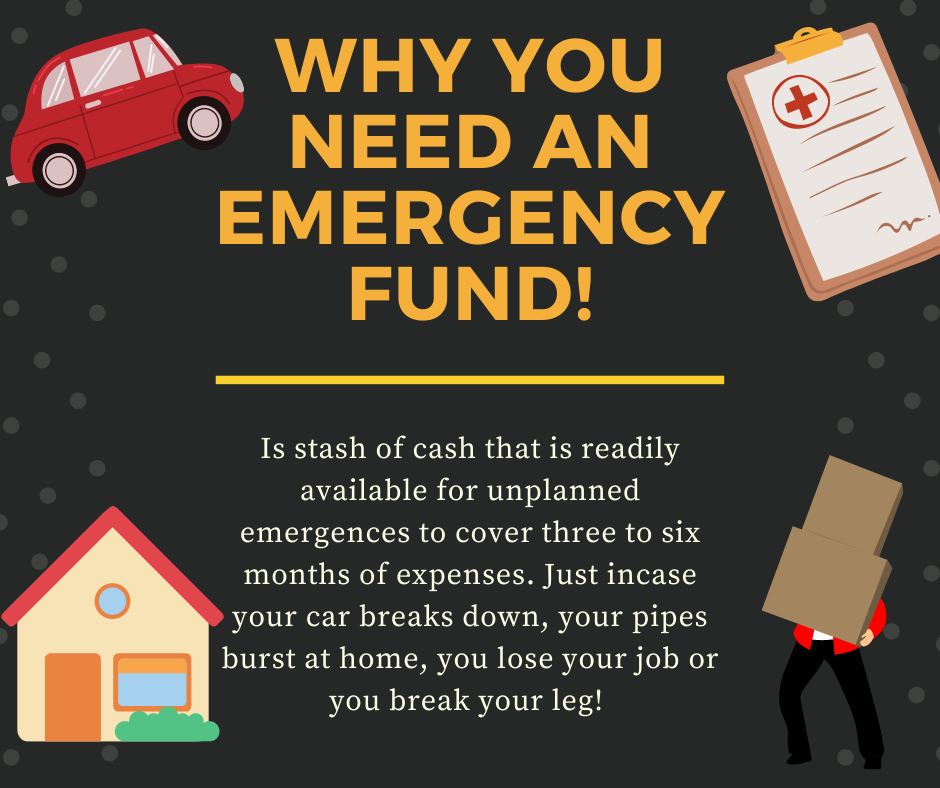What is an emergency fund?
An emergency fund is stash of cash that is readily available for unplanned expenses. It is an essential part of any financial plan and should be built up to cover three to six months of all expenses!
What are emergency funds for?
- Emergency medical bills
- Home repairs and necessary appliances breaking
- Car repairs and tow expenses
- Job loss, being furloughed or laid-off,
- Unexpected death of a family member
Why do you need an emergency fund?
We all know that when it rains, it pours. More often than not, when your car breaks down something else that is just as expensive will break too. No matter how small the car accident might be, unplanned expenses always seem to hit hard.
If you are struggling to cover all your expenses already and you are not alone. A study conducted by Career Builders found that 51% of people making less than $50,000 are living paycheck to paycheck. Maintaining an emergency fund is so important, it is actually step # 2 out of the nine steps to being financially stable. Before you start investing or saving for retirement you need to have an established emergency fund that you can fall back on if needed.
An emergency fund is a backup plan for you to use when things hit the fan. It is your safety net that should always be tucked away, but easily accessible. You do not want to take out a last-minute loan to get through a time of crisis. That is why everyone needs an emergency fund that you can simply dip into to cover your basic needs or pay unexpected expenses. This keeps you from taking out a high interest loan or racking up a large amount of high interest credit card debt.
How big should my emergency fund be?
Your emergency fund should cover your expenses for at least 3 months, 6 months would be better! We all know that getting enough cash saved up to cover 6 months of expenses is no easy feat! But you just have to start somewhere. If you can build up $5 to $50 and then to $100 you are on the right path! It will take time, but you just need to keep working at it.
The best way to do this is to create a budget and stick with it! By following a budget, you will know how much money is needed to meet your basic needs every month. You can then use that information to take baby steps to build up that cash reserve to meet that.
Where should I keep my emergency fund?
You want to have your emergency fund in an easily acceptable account. A high yield savings account or a money market accounts is a good way to go! I personally like to keep a few hundred dollars in physical cash just incase something happens with my debit card. But that is just a personal preference and an idea to consider.
Your emergency fund is your safety net. It is a personal insurance policy that gives you the protection to make it through times of crisis and to give you and your family piece of mind.
Resources:
Career Builder, Press Release 8/24/2017. Living Paycheck to Paycheck is a Way of Life for Majority of U.S. Workers, According to New CareerBuilder Survey.
© EuduringFinances, 2021. All Rights Reserved.
Related Posts –





2 thoughts on “Having an Emergency Fund and Why It Should Matter to You!”
Comments are closed.